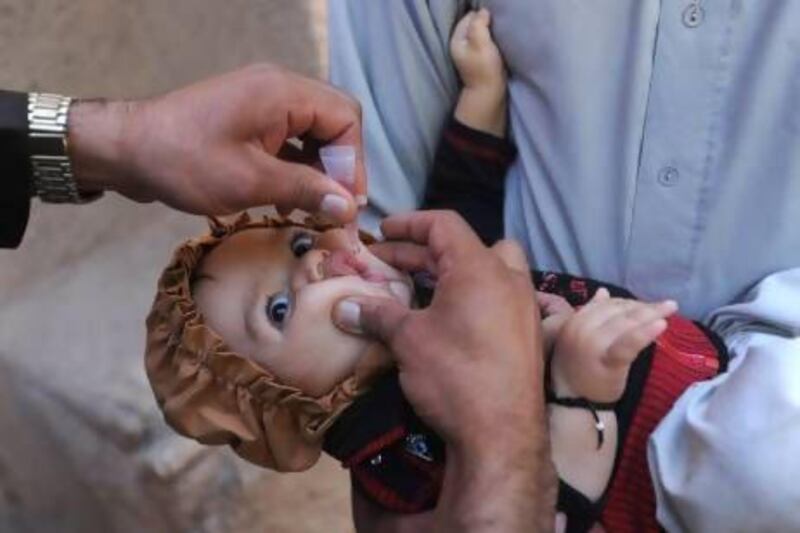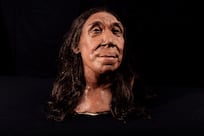ABU DHABI // The billionaire philanthropist Bill Gates will tell a summit in the capital today that polio can be eradicated in five years and more than 20 million lives saved by 2020.
The Microsoft chairman will address more than 300 global leaders, health experts and business chiefs at the world's first Global Vaccine Summit. "Vaccines work to save lives and protect children for a lifetime," said Mr Gates, co-chair of the Bill and Melinda Gates Foundation. "By investing in stronger immunisation systems, we can protect our gains against polio and reach mothers and children with other health services."
The summit, under the patronage of Sheikh Mohammed bin Zayed, Crown Prince of Abu Dhabi and Deputy Supreme Commander of the Armed Forces, and in partnership with the UN secretary general Ban Ki-moon, will discuss how to reach the world's poor children for immunisations. Mr Gates, who also writes in The National today, will speak in honour of the individuals, communities, partners and nations working to try to immunise every child.
Fewer than 250 polio cases were reported last year, compared with 650 in 2011, but more work is needed to reach the neediest children. Polio remains endemic only in Pakistan, Afghanistan and Nigeria, and the hardest-to-reach children - those of migrant workers, the displaced and those living in areas of conflict and insecurity - are most at risk.
Despite progress, one child still dies every 20 seconds from preventable diseases such as pneumonia, rotavirus, measles and meningitis.
The summit, which will continue tomorrow, is being held during World Immunisation Week to continue the momentum of the Decade of Vaccines, a collaboration between figures from the global vaccine community to reach everyone who needs a vaccine.
Eradicating polio is a critical part of the strategy.
Last May, nearly 200 countries came together to endorse the Global Vaccine Action Plan, to develop better and more affordable vaccines and deliver them through stronger routine immunisation systems.
The plan aims to save more than 20 million lives and prevent nearly one billion illnesses by 2020. It is estimated this will save nearly US$12 billion (Dh44bn) in treatment costs.
"Immunisation is one of the most cost-effective ways to prevent disease and safeguard young lives," said UN secretary general Ban Ki-moon.
"The global success so far in fighting polio shows how far we can advance. Our great progress came thanks to an international alliance of partners.
"Today, we have a window of opportunity to end polio forever."
The Global Alliance for Vaccines and Immunisation (Gavi), which secures funding for vaccination programmes in the world's 73 poorest countries, aims to expand its operations through greater cooperation with governments, private business groups and non-government organisations at the vaccine summit.
Summit attendees, including ministers of health, frontline healthcare workers, international non-governmental organisations and donors, will discuss a roadmap to eliminate the disease, which will be released after the conference and will cover the financial, technical and political requirements.
Organisers hope it will be the final eradication strategy and, by 2018, polio will be only the second human disease to be eradicated, after smallpox was in 1979.
The two-day vaccines summit is being held at Jumeirah Etihad Towers.
Other speakers at the event include Kofi Annan, the former secretary general of the United Nations and Nobel Prize Laureate; Margaret Chan, the World Health Organisation's director general; Seth Berkley, the chief executive of GAVI Alliance; Sheikha Lubna bint Khalid Al Qasimi, the Minister of Development and International Cooperation in the UAE; Ade Adepitan, a British Paralympic champion and broadcaster; Anthony Lake, the executive director of Unicef; and Ahmed Mohamed Ali Al Madani, president of the Islamic Development Bank Group.





